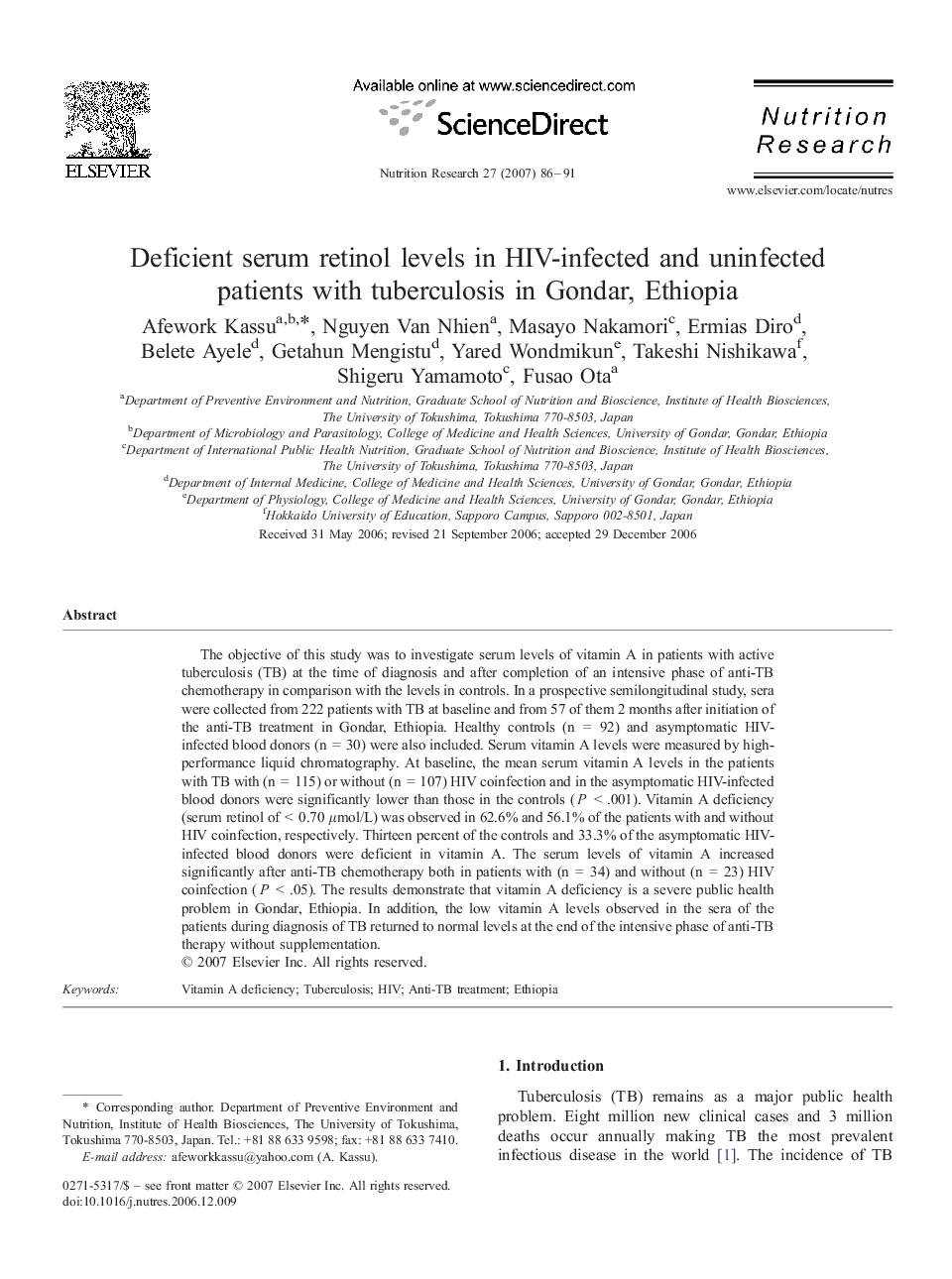| Article ID | Journal | Published Year | Pages | File Type |
|---|---|---|---|---|
| 2809734 | Nutrition Research | 2007 | 6 Pages |
The objective of this study was to investigate serum levels of vitamin A in patients with active tuberculosis (TB) at the time of diagnosis and after completion of an intensive phase of anti-TB chemotherapy in comparison with the levels in controls. In a prospective semilongitudinal study, sera were collected from 222 patients with TB at baseline and from 57 of them 2 months after initiation of the anti-TB treatment in Gondar, Ethiopia. Healthy controls (n = 92) and asymptomatic HIV-infected blood donors (n = 30) were also included. Serum vitamin A levels were measured by high-performance liquid chromatography. At baseline, the mean serum vitamin A levels in the patients with TB with (n = 115) or without (n = 107) HIV coinfection and in the asymptomatic HIV-infected blood donors were significantly lower than those in the controls (P < .001). Vitamin A deficiency (serum retinol of < 0.70 μmol/L) was observed in 62.6% and 56.1% of the patients with and without HIV coinfection, respectively. Thirteen percent of the controls and 33.3% of the asymptomatic HIV-infected blood donors were deficient in vitamin A. The serum levels of vitamin A increased significantly after anti-TB chemotherapy both in patients with (n = 34) and without (n = 23) HIV coinfection (P < .05). The results demonstrate that vitamin A deficiency is a severe public health problem in Gondar, Ethiopia. In addition, the low vitamin A levels observed in the sera of the patients during diagnosis of TB returned to normal levels at the end of the intensive phase of anti-TB therapy without supplementation.
